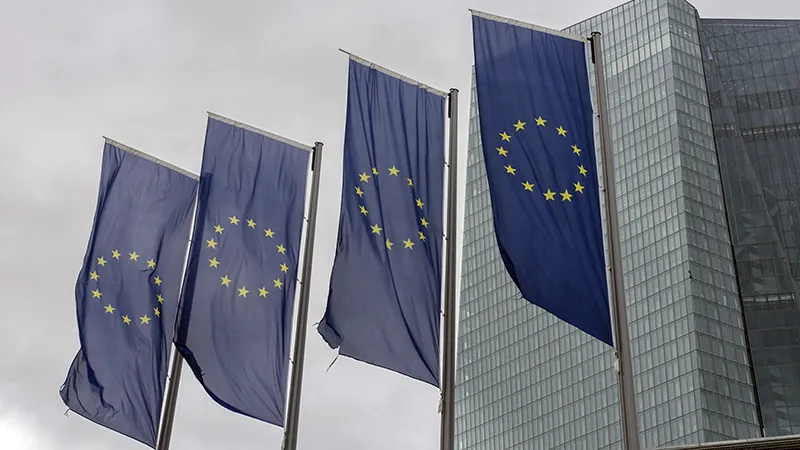
The discussion in Great Britain, as the referendum on whether it would stay in the European Union approached, was even more insular than expected from an island nation. The Remain campaign focused on what leaving the EU would do to the British economy; a dark vision of years-long depression that its opponents decried as ‘Project Fear’. The Leave campaign, meanwhile, presented a relentlessly optimistic view of Britain without Europe as free to return to its former Britannia-Rules-the-Waves glory; the implication was that Europe, with its regulations and migrants and social-democratic stodginess was dampening the old Anglo-Saxon adventurous, exploring spirit.
Quite absent in this discussion was what Brexit might mean for Europe. Perhaps that, in itself, was a sign that the European Union is better off without a country that did not even consider the fate of the European project worth discussing before making a choice that could throw it into crisis.
Now that Brexit has been voted for, and the initial post-referendum denial that Article 50 would ever be invoked has thankfully dissipated into isolated grumbling, it is time to finally ask the question: What does Brexit mean for Europe?
The initial fears, that Brexit would embolden anti-integration forces elsewhere in the European Union, is only partially true. Yes, many have been startled to see anti-Europe protestors in places like Italy hold up British flags; the sight of France’s far-right leader Marine le Pen gleefully declare that Brexit is the most important moment for Europe since the fall of the Berlin Wall is perhaps less surprising, but no less disquieting. But, it is important to note the broader impact on European’s attitudes towards the EU. In survey after survey, Brexit actually increased support for the Union. In Denmark, polls suggested a 10 percent swing towards staying in the EU; in Finland, the pro-EU swing was 12 percent; in Germany, it was 19 percent; in Spain, nine percent. Even in le Pen’s own France, in spite of her strong polling ahead of next year’s presidential elections, support for the EU increased 10 percent, to 67 percent altogether.
In one sense, therefore, the rejection of the EU by the British — or, to be more accurate, by the English outside London — has strengthened the likelihood that the Union will stay together. The fear that the unprecedented choice by a member to leave the EU would immediately weaken the grouping has, for the moment at least, receded. In any case, the presence of the euro means that for euro-zone members in particular, there is — in the words of Brookings’ Thomas Wright — an additional “firewall” preventing their exit.
< style="color: #163449;">But what sort of European Union will Britain leave behind?
It is important to remember the role that Britain has played in Europe — since it joined in the 1970s, but more sharply since Margaret Thatcher made EU-baiting central to British politics in the mid-1980s.
What Thatcher made explicit was that the purpose of the European Community for Britain was economic community — a single market for goods and for finance. But for its largest European partners, the purpose of the European Community was to move towards union — the creation of actual supra-national institutions. Britain wished to move towards freer trade; the rest of Europe, towards greater financial and monetary integration. Once the issue of British contributions to the EU budget were settled, the biggest flashpoints in the late 1980s between Britain and Europe came over the creation of the European Central Bank and the size of the European Commission’s budget, as well as the scope of its responsibilities. In negotiations over the Maastricht Treaty, the British resolutely spoke out against the idea that the Treaty would be part of a process ending in federation.
And, finally, there was the question of military co-operation within Europe. This, as far as Britain was concerned, was always best as part of NATO; this, too, was not always met with agreement in European capitals, particularly in Paris. The vague sense that the United Kingdom always saw itself militarily more as the United States’ junior partner rather than an equal partner in Europe became incontrovertible fact in the run-up to the Iraq War, wherein the differences between Tony Blair’s “with you, always” attitude towards the US and the Franco-German disdain for intervention were starkly visible.
It is true that the Europe of today is far less convinced about the value of supra-national institutions and ever-closer union than the Europe that the British held back from integration 30 years ago. However, now that the British have removed themselves from the room, the effects of increased cohesion within the political elite of the continent are nevertheless worth watching. Sovereignty will remain important, of course — how could it not — but the British obsession with fighting any reduction in Westminster’s sovereignty has now been removed as a factor.
In some sense, the presence of Britain allowed the Franco-German alliance at the core of Europe to stay strong. The British emphasis on the EU as an economic, inter-governmental concept meant that the French and Germans were constantly thrown together in opposition, sharing as they do a commitment to European integration for reasons beyond the economic. The absence of Britain, however, means that this commonality of purpose may well begin to fray. This might be visible first in the construction of EU actions outside its territory. Berlin may still think of Europe in terms of geo-economics first; Paris, in terms of geopolitics.
Even if the absence of Britain allows Europe to move quicker towards institutional integration — as I have argued is possible — differences between France and Germany on the nature of greater integration may become quickly apparent. Britain was, for Germany, frequently useful as a stalking horse; Berlin never had to murmur against Parisian dirigisme in Europe as long as London was around to do the shouting instead.
But, perhaps the greatest impact on Europe of Brexit will be that the US’ fears will come to pass, and Europe will turn away from the Atlantic. Britain, with its “special relationship”, its focus on Anglo-American attitudes to trade, its emphasis on NATO-led military co-operation, kept the EU thinking of itself as an Atlanticist body long after global currents should have faced it elsewhere. The centre of gravity of a Europe without Britain shifts sharply south and east; its orientation even more so. For Germany and Poland, dealing with Russia will come first, pushing the EU eastward; France’s connections with sub-Saharan Africa and the Maghreb will now push the EU southwards; and China’s increasing footprint in Eastern Europe, sharply visible in Xi Jinping’s recent imperial progress through the region, will make a difference too. Never since Spain and Portugal sent ships out into the Atlantic and launched the age of exploration has so much conspired to turn Europe towards Asia.
This, perhaps, will be the most enduring legacy of Brexit: For the first time in centuries, Europe may begin to see itself as a Eurasian power.
The views expressed above belong to the author(s). ORF research and analyses now available on Telegram! Click here to access our curated content — blogs, longforms and interviews.




 PREV
PREV


